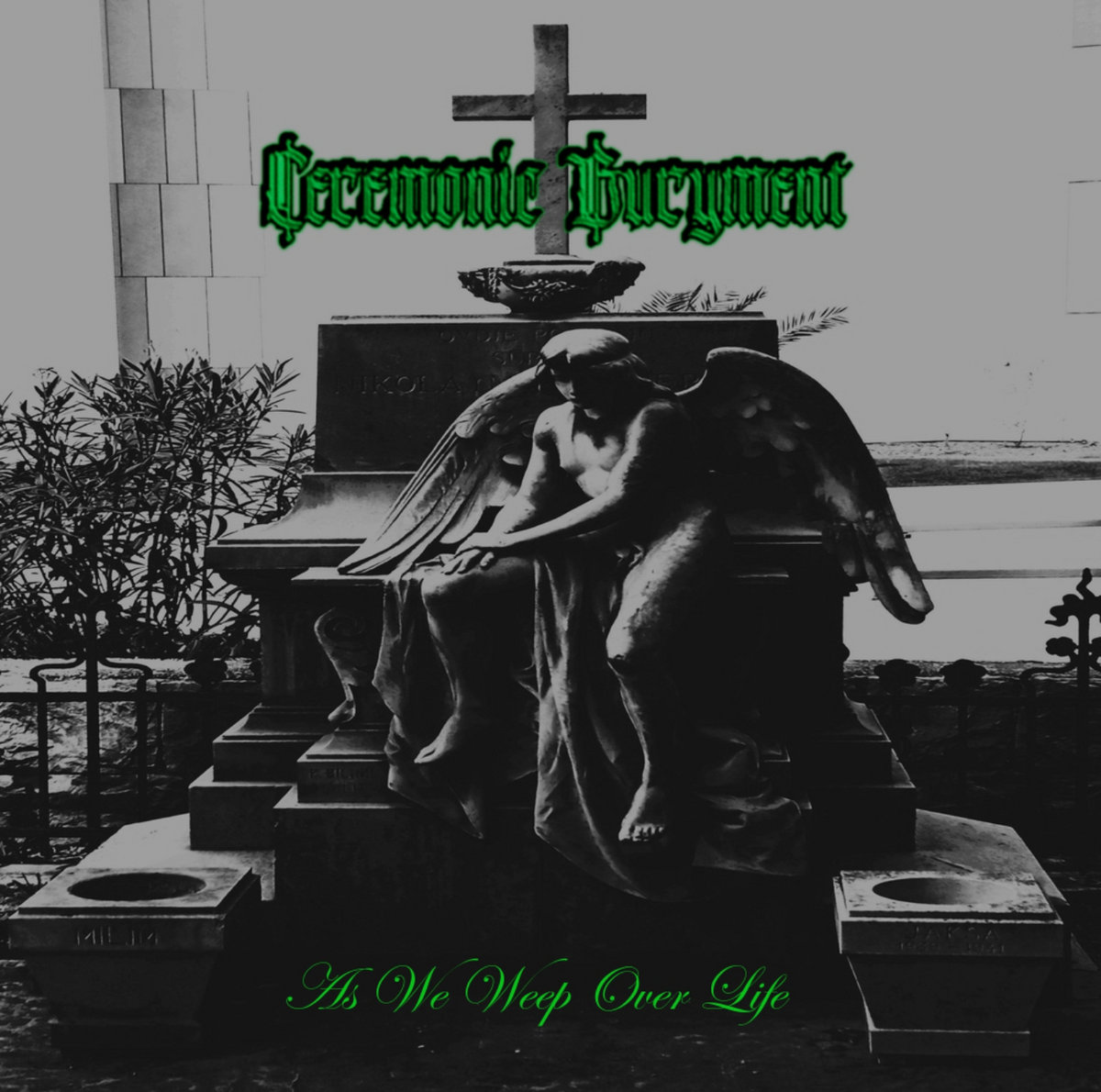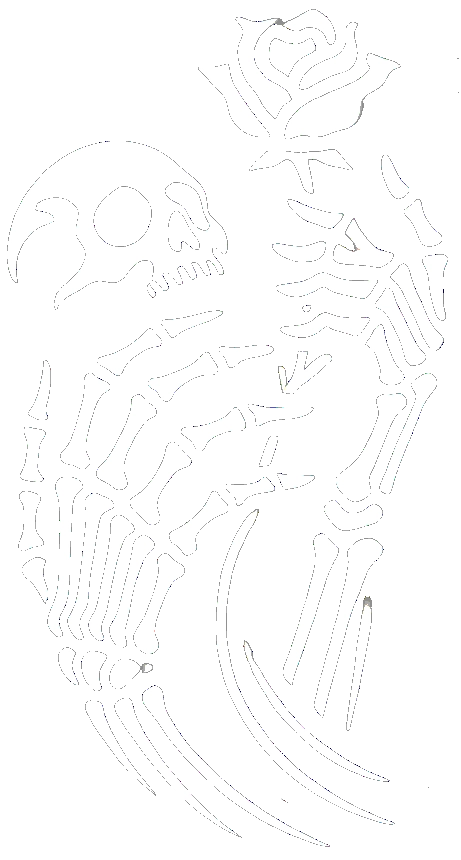Recording a funeral doom album on the theme of deviation from the norms of human behavior is certainly not innovative, and Ceremonic Buryment never reinvent Funeral Doom musically or lyrically at any point in their work, even if their goal was to create something distinctive within the genre. They haven’t quite succeeded in that regard. Instead, As We Weep over Life serves as proof from the duo Malevolus (instruments) and Margul Demonic (vocals) that ambient funeral doom still retains its relevance.
The Other of Reason
The essence of the album can be defined on two levels. On one hand, there is the consistent focus on atmosphere. On the other, it links to Michel Foucault’s concept of normalization as the construction of an idealized behavioral norm within society. The album begins with recordings addressing self-determined departure from life and ends with those revolving around murder and dissociality. It opens with a sense of being cut off from one’s own emotional world and the total lack of motivation that characterizes clinical depression, and concludes with dissociality-driven theses and reflections on the violent killing of others. These are two extremes of human detachment from societal norms. Schopenhauer’s idea of death as the ultimate goal of life perhaps flickers through here, as does his thesis that man can only be free and truly himself in isolation. With Foucault in mind, both samples reflect paternalistic interventions of disciplinary power, revealing how psychiatry and law enforcement confront individuals with their deviations and expose them as abnormal. The individual under the microscope of power is dissected, cataloged, and mapped, contrasting the construct of an idealized behavioral norm against the concept of abnormality. Madness serves as “the Other of reason,” as a contrast to the productive and healthy ideal. This Other is marginalized, locked away, and subjected to rational control and discipline.
A Sparse Wilderness
Between these samples, Ceremonic Buryment craft a funeral doom reminiscent of the early works of Until Death Overtakes Me, This Cold View, or Locus Requiescat. A sparse wilderness of slow, depressive music often unfurls soundscapes that serve as a canvas for simple, sorrowful guitar motifs. The foundation of the music consists of a slow, minimal rhythm, textural layers of synths or looped guitars, and endlessly reverberating growls. Margul Demonic’s guttural murmurs almost dissolve into the music’s very essence, becoming a raw component of the oppressive and lethargic atmosphere that pervades As We Weep Over Life. Grasping and experiencing this deliberately grating and monotonous mood music requires painstaking patience and attention.
A compelling bassline in Futility of Everything, an interesting rhythmic figure in The Meaning of Being, and a few elegant guitar melodies such as in Forever Done act as sparse yet surprisingly pointed focal points of attention, while consciousness otherwise drifts into the hypnotically lulling music. No vocals, let alone words, can be discerned. Instead, the album is a single trance that must be experienced in its entirety, building toward the climax of the final sample’s last words.

